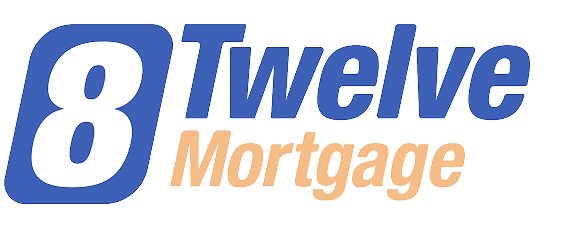
Summary
- Pre-approvals describe a mortgage amount that a lender would qualify you for based on your income, debts, and other financial factors.
- Pre-approvals help you secure an interest rate for 60-120 days as you browse for your first home.
- Homebuyers can use pre-approvals to streamline their property search and focus on homes they can afford.
You’re browsing MLS and come across a gorgeous Parkdale condo overlooking the lake. The bedroom actually has a door, the ceilings are sky-high, and the balcony is perfect for sunbathing and cocktail gatherings.
Price tag: $850,000. You think you can afford the monthly payments, but you’re unsure if you can get a mortgage.
A mortgage pre-approval offers some insight — and a whole bunch of other benefits.
Let’s walk through what a mortgage pre-approval means, how it supports your home-buying journey.
What is a mortgage pre-approval?
A mortgage pre-approval, or pre-approved mortgage, tells you how much a lender would qualify you for a mortgage. It also includes the interest rate you’re eligible for, depending on the market and your overall financial picture.
Let’s say you make $65,000 per year, or $5,416 monthly before taxes. You might plug some numbers into a mortgage calculator to see if you can afford that lakeside Parkdale condo. The monthly payments are hefty, but you’re sure you can afford it. Now, let’s take your financial documents to the bank to see what they say.
If you’re prepared to put down 10% ($85,000), you’d want a pre-approval for $765,000. That translates to $2,125 in mortgage payments each month. But that doesn’t include mortgage insurance, interest, property tax, or utilities. All of that can easily tack on an extra $1,000+ per month.
Plus, banks put a stress test on your financial picture to make sure you can afford payments even if interest rates go up. So if the current interest rate is 3%, they’ll test your affordability at 5.25%, or the going rate plus 2%.
What documents do you need for a mortgage pre-approval?
Your lender will look at your bank statements, employment letter, credit score, and a lot more before offering you a mortgage pre-approval.
Here’s a list of everything they’ll want to see:
- Bank statements
- ID and proof of address
- Two years of tax records (if you’re self-employed)
- Asset information (cars, investments, other properties)
- Debt information (credit card statements, other mortgage statements, loan statements)
- Employment letter and employer contact information
- Pay stubs and proof of income
- Value of property in question
- Projected income (if an investment property)
- Co-applicant financial information
- Property expenses (utilities, property tax, etc.)
Got all that? Great. Let’s get back to our hypothetical scenario…
So you submit everything to the bank. They pre-approve you for a mortgage, only it’s not for $765,000. You’re pre-approved to borrow $500,000.
Now what? Keep reading.
What if I’m not pre-approved for the amount I want?
Banks, especially the big ones, are quite conservative in how they assess affordability. Now that’s not necessarily a bad thing. You might be in for a wake-up call once you have to shell out thousands of dollars a month in mortgage, interest, and the rest of it. It’s ideal to enter a property purchase fully aware and prepared.
Narrowing down your search to more affordable properties could be a better move. But maybe your heart’s set on that condo.
If you’re not satisfied with the pre-approval, you could try the following:
- Re-apply with new information: Maybe you didn’t adequately account for your true capabilities in your original application. For example, perhaps you’re buying this condo as an investment property. The bank would have to factor in added rental income each month to assess your affordability. The projection would likely tip the pre-approval amount higher. Additionally, you might include any other parties that plan to split the mortgage payment with you (co-applicant), or mention that you’ll have a roommate. These are all important factors the bank could consider.
- Seek pre-approval elsewhere: Good thing there’s more than one lender out there! If you had no luck with one bank, try another and tell them your situation; You weren’t approved for your desired amount, and you’re hoping to find a lender who will pre-approve you for higher than what the last bank offered. There’s a chance that a different lender will try to secure your business. And if that doesn’t work? Take your documents to a credit union or alternative lender. You could even try a mortgage broker.
Remember: Pre-approval isn’t the same as mortgage approval. You’ll still need to confirm financing before you sign on the dotted line. If that’s the case, what’s the point of pre-approval?
Why do you need a mortgage pre-approval?
Pre-approvals might feel like extra red tape, but it does offer you a few benefits:
- Financial awareness: It’s always a good idea to be aware of your finances and the market. Pre-approvals offer insights to help inform your buying strategies.
- Interest rate protection: A pre-approval locks your mortgage at an interest rate for a set period. For example, TD and RBC lock-in your interest rate for 120 days through pre-approvals. Pro tip: Ask your lender what happens if interest rates decrease during your locked-in period. Try to negotiate an allowance to reflect lowered rates in your approval.
- Serious offers: Buyers will look at your offer more seriously if you can show a pre-approval. This means that you’re less likely to back out of the deal on a financing condition.
Pre-approved mortgages are a vital step in your property purchase. They offer peace of mind, negotiating power, and interest rate protection — all valuable assets in the real estate world!





